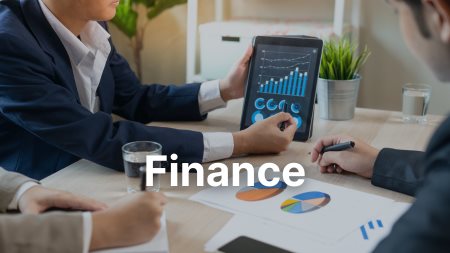Commonly what we all think about retirement is whether we have enough to survive. The truth is that it is probable that you will live a third of your life without an income, and we may only really realise this when we are approaching our 50s.
It is likely that we are so engrossed in just making ends meet, that preparing for retirement is the last thing on our minds, or even if it is a consideration, the hope is that our financial circumstances will improve sometime in the future.
Here are three possible scenario’s that apply to those who aren’t financially prepared for their retirement:
- You are constantly worrying about money. Your pension or savings funds are no longer sufficient, and you are living from month-to-month, exhausting credit facilities. The writing is on the wall!
- You have a small amount of capital available, but uncertain how to earn the best return, especially as some of the offerings appear to be high risk.
- Your existing retirement/pension funds are not sufficient to meet your monthly costs today, let alone in the future.
What you need to recognise is that you are not alone in this thinking and that you may not have enough knowledge about your financially wellbeing. You are also weighed down by a country burdened with a slow economy, and, whether you realise it or not, you are influenced by marketing strategies that encourage a lifestyle often beyond your means.
Regardless of your age, it is always the right time to take control of your future financial wellbeing, and rescue your retirement before you are trapped and possibly dependent on others to ensure your comfort when you stop ,or are forced to stop, working. Looking for a get-rich scheme is rarely the solution, they are invariably very risky. Pyramid schemes are one such, and have become notorious for the loss of lifetime savings or pension funds.
Risk
Risk is one of the elements that prevents us from moving forward, but it is also one of the factor’s that make the rich wealthy. While it may be that ideally, risks should be taken when you are young and time is on your side in terms of recovery, we must also realise that we take risks every day of our lives, with and without awareness. With the right knowledge, however, risk-taking can be rewarding, and more so if you invest in property, which historically has always provided a good return.
The alternative’s are few in terms of reaping a return on an investment. Perhaps you’ll look at the stock market, which tends to fluctuate given its volatility to market movements and global and national crises. You might consider an insurance policy, which in your youth is a great idea if you intend to keep it aligned to inflation. Savings investments abound … the bottom line is though, you need to use your own money to build wealth, and if this is limited, so too will be your return.
Property solution
Property is a way to make your money work for you, and effectively, Sure the return won’t be tomorrow, but it is a future fallback that increases in value over time. But, before you even begin to explore the opportunities in the property market, you need to create as best possible, a healthy financial status.
These steps will help:
- Consider cutting up your credit cards: they work against you in terms of interest charged.
- Seriously look at where your money goes every month.
- Acknowledge your spending weaknesses and take steps to control those.
- Open a savings account and ensure an automatic deduction, which limits your temptation to spend.
- Create a budget that is realistic and reasonable.
- Eliminate any short-term debt by paying more than the basic minimum.
- Renegotiate contracts, such as insurance, mobile phones, car finance, to reveal potential savings.
- Plan to work longer than the retirement age if you are older than 40 years.
- Create an emergency fund to account for unexpected emergencies.
- Make a commitment to change and cultivate an ‘investor’ state of mind.
Once you have your financial affairs in order, and your mindset is focused on retirement planning, only then should you consider making an investment in property, and one that will give you a passive income. This may require applying for a home loan but if you use this debt wisely, you will realise ownership of an asset that can earn a passive monthly income after the home loan debt is settled.
On acquisition of a property you will still need to be vigilant with your finances, including managing the property effectively. Perhaps you can invest more into the home loan, thereby paying it off quicker. And if that happens, consider using the excess to acquire a second property, thereby building a property portfolio.
If you don’t have enough financial literacy, there are millions of resources on the internet, but know that with the right knowledge, property investment can yield returns for years to come as it rarely depreciates in value. Set your goals today to secure a healthy financial future.



